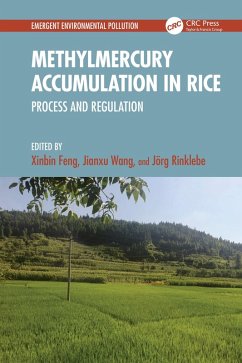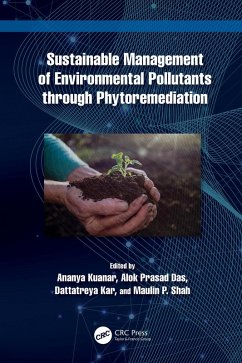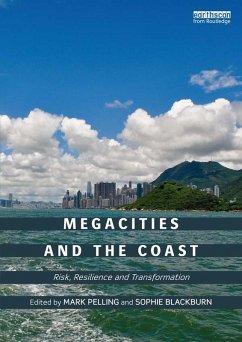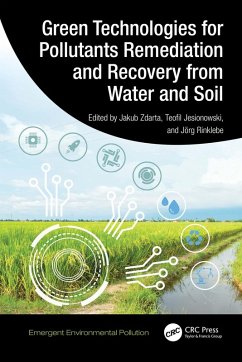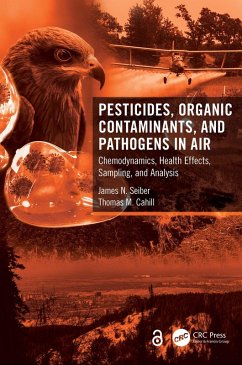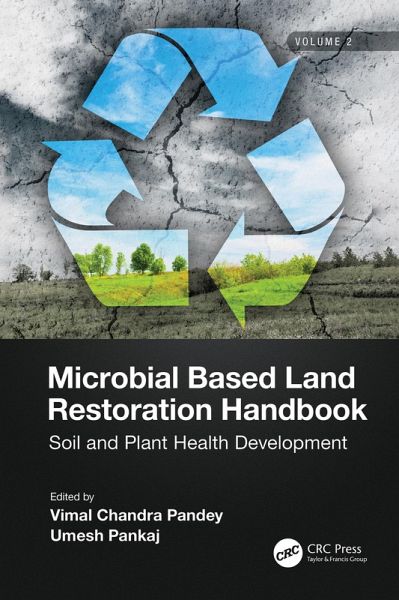
Microbial Based Land Restoration Handbook, Volume 2 (eBook, ePUB)
Soil and Plant Health Development
Redaktion: Pandey, Vimal; Pankaj, Umesh
Versandkostenfrei!
Sofort per Download lieferbar
56,95 €
inkl. MwSt.
Weitere Ausgaben:

PAYBACK Punkte
28 °P sammeln!
Microorganisms are a good indicator of soil health. Plant growth-promoting microorganisms protect plants from the stresses of water, salt, metal, biotic, and so on, and are well known for strategically modulating the plant mechanisms to defend and mitigate environmental stresses. Taking a multidisciplinary approach, this volume explores the role of plant microorganisms in ecological and agricultural revitalization beyond normal agriculture practices and offers practical and applied solutions for the restoration of degraded lands to fulfill human needs with food, fodder, fuel, and fiber. It als...
Microorganisms are a good indicator of soil health. Plant growth-promoting microorganisms protect plants from the stresses of water, salt, metal, biotic, and so on, and are well known for strategically modulating the plant mechanisms to defend and mitigate environmental stresses. Taking a multidisciplinary approach, this volume explores the role of plant microorganisms in ecological and agricultural revitalization beyond normal agriculture practices and offers practical and applied solutions for the restoration of degraded lands to fulfill human needs with food, fodder, fuel, and fiber. It also provides a single comprehensive platform for soil scientists, agriculture specialists, ecologists, and those in related disciplines.
Features
. Presents cutting-edge microbial biotechnology as a tool for restoring degraded lands
. Explores the aspects of sustainable development of degraded lands using microorganism-inspired land remediation
. Highlights sustainable food production intensification in nutrient-poor lands through innovative use of microbial inoculants
. Explains the remediation of polluted land for regaining biodiversity and achieving United Nations Sustainable Development Goals
. Includes many real-life applications from South Asia offering solutions to today's agricultural problems
This book will be of interest to professionals, researchers, and students in environmental, soil, and agricultural sciences as well as stakeholders, policy makers, and practitioners with an interest in this field.
Features
. Presents cutting-edge microbial biotechnology as a tool for restoring degraded lands
. Explores the aspects of sustainable development of degraded lands using microorganism-inspired land remediation
. Highlights sustainable food production intensification in nutrient-poor lands through innovative use of microbial inoculants
. Explains the remediation of polluted land for regaining biodiversity and achieving United Nations Sustainable Development Goals
. Includes many real-life applications from South Asia offering solutions to today's agricultural problems
This book will be of interest to professionals, researchers, and students in environmental, soil, and agricultural sciences as well as stakeholders, policy makers, and practitioners with an interest in this field.
Dieser Download kann aus rechtlichen Gründen nur mit Rechnungsadresse in A, B, BG, CY, CZ, D, DK, EW, E, FIN, F, GR, HR, H, IRL, I, LT, L, LR, M, NL, PL, P, R, S, SLO, SK ausgeliefert werden.







